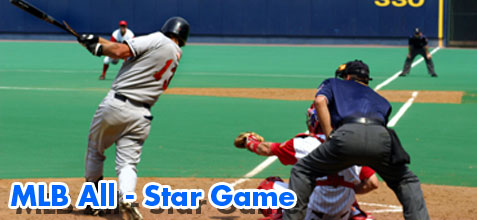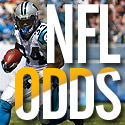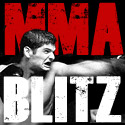
Sports Channel / Bullz-Eye Home
The “Midsummer Classic” was first introduced in 1933 as part of the World Fair in Chicago. The architect of the MLB All-Star game was Arch Ward who in 1933 was a sports editor of The Chicago Tribune.
The idea was simple: pit the best players from the National League vs. the best players from the American League and let the fans enjoy the best talent in the game at the same time.
At first thought, the All-Star Game was just supposed to be a one-time event. The game was so popular, however, that the All-Star Game is now a staple in MLB history.
Every year at the halfway point in the regular season, the fans decide which players to elect onto each All-Star roster. Interestingly enough, however, fans didn’t always have the luxury to vote for their favorite players.
In 1957, the All-Star game was to be held in Cincinnati. As part of showing their appreciate to the Reds, The Cincinnati Enquirer printed pre-marked ballots that went out with the Sunday newspaper so fans had an easier chance to vote.
The result turned into a National League team that featured seven Reds. Commissioner Ford Frick decided that enough was enough with letting fans vote, so he restricted their involvement until 1969. Up until that point, managers, players and coaches decided who was the most deserving to play in the game.
In 1985, the event evolved into not only the game itself, but also pre-game actives (like the Home Run Derby) were added as well.
The Home Run Derby is always played a day before the All-Star Game. The event is supposed to see who the best home run hitters are in the league, although sometimes, current home run leaders decide not to participate.
In 2002, a controversy sparked another change in the game, this time the change would effect even how the World Series is to be played.
Without much meaning to the game, managers of both squads play everybody on the roster in an effort to reward the players for being elected. With the 2002 game tied 7-7 heading into the 11th inning, however, both squads had run out of pitchers to use.
MLB rules state that once a pitcher is taken out of game, he cannot return. The same rules apply in the All-Star game, so when both squads ran out of pitchers, current commissioner Bud Selig decided to end the game as a tie.
In order to add more meaning to the event, every game played since 2003 has decided who gets home field advantage in the World Series. Some people love the idea; some think it is a black mark on the league and should be changed.
The MLB All-Star Game may change formats and venues every year, but Ward’s idea is still the same today as it was back in 1933:
One time a year, let the fans enjoy the best players in the game compete against each other on the same field at the same time.
This year, the venue shifts to New York and historic Yankee Stadium. See below for a complete web guide on event, including links to general information and a chance to re-live past All-Star games.
Our latest sports content can be found in the Sports category in our new magazine format. Archived sports content can be found in the Sports category in our blog.
Top Information Websites
MLB.com
Official web site of Major League Baseball, with features like team pages, player profiles, stats and live game casts of every MLB event.
The Sporting News: History of the MLB All-Star Game
Select a year and The Sporting News will run down a game recap and give stats of every MLB All-Star Game since 1933.
2008 MLB All-Star Game
The 2008 MLB All-Star Game will be held at Yankee Stadium in New York this year. Check out top news, multimedia and the latest information on the event.
Videos
Top ASG Moments of All Time
Nolan Ryan 1979 All Star game
MLB All-Star Game Past Winners
|
You can follow us on Twitter and Facebook for content updates. Also, sign up for our email list for weekly updates and check us out on Google+ as well.













